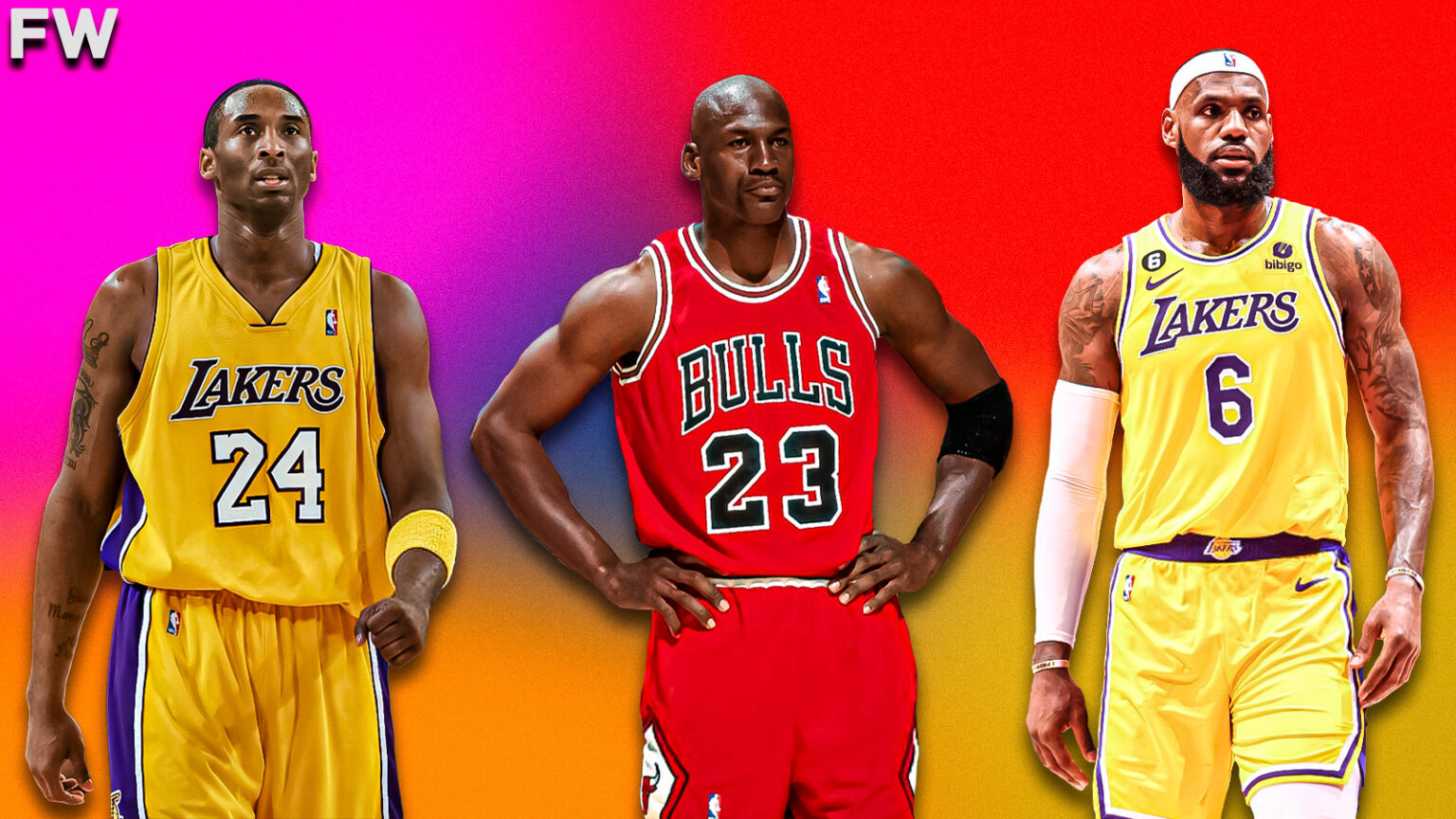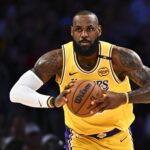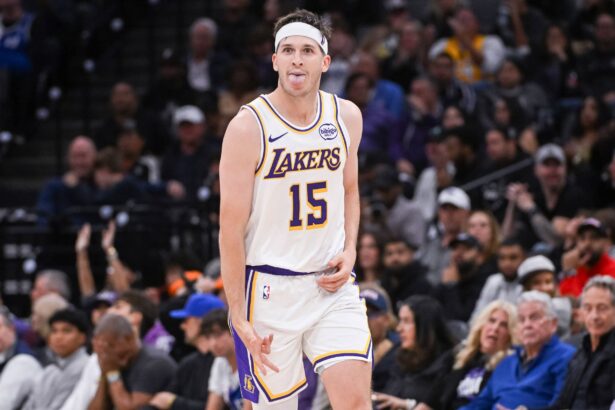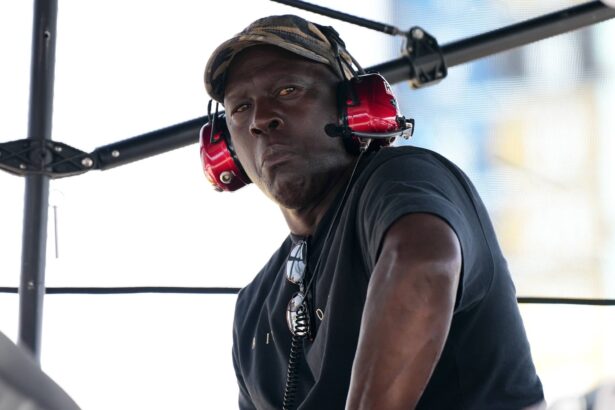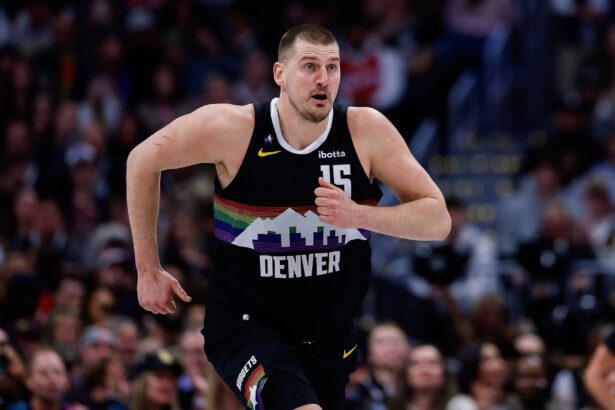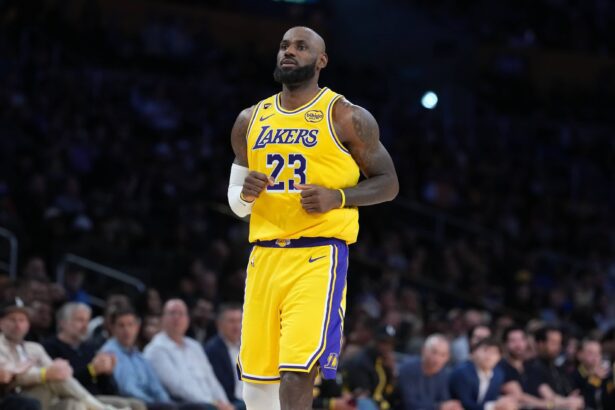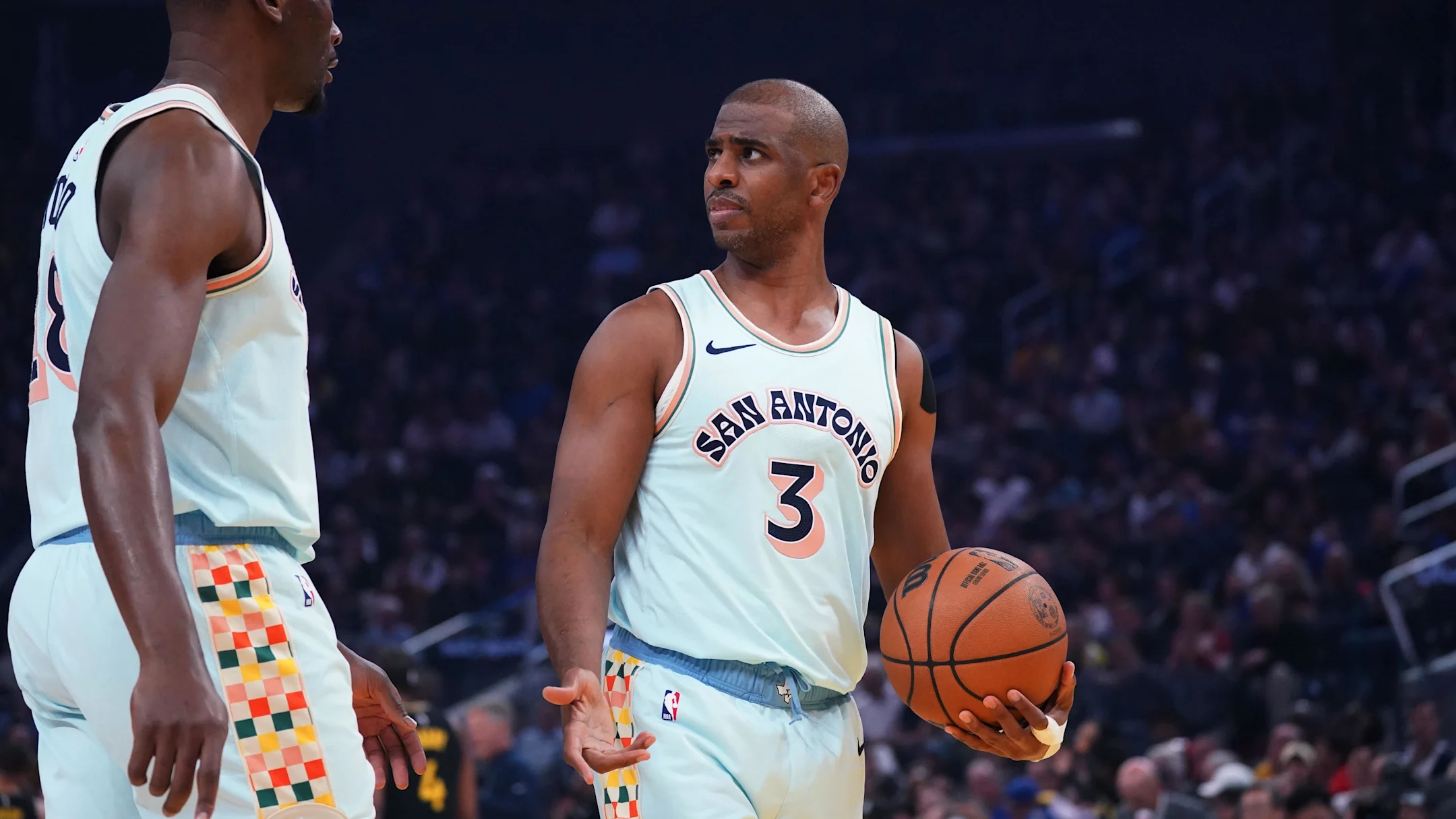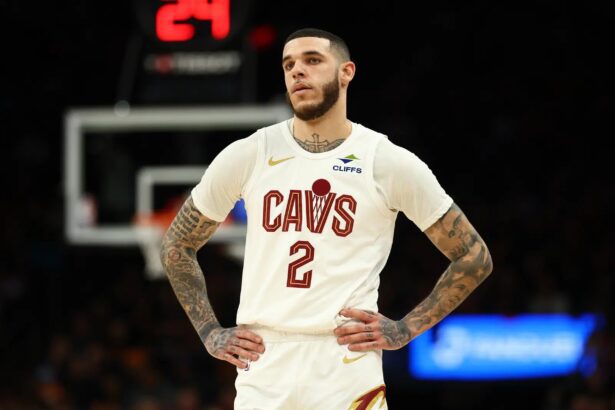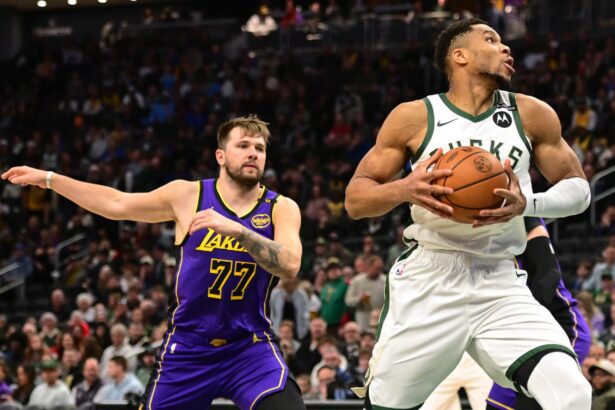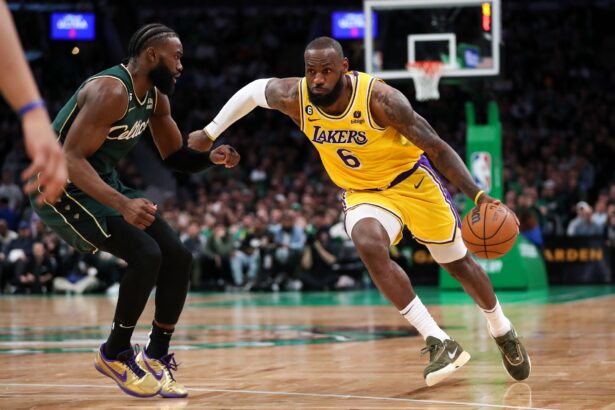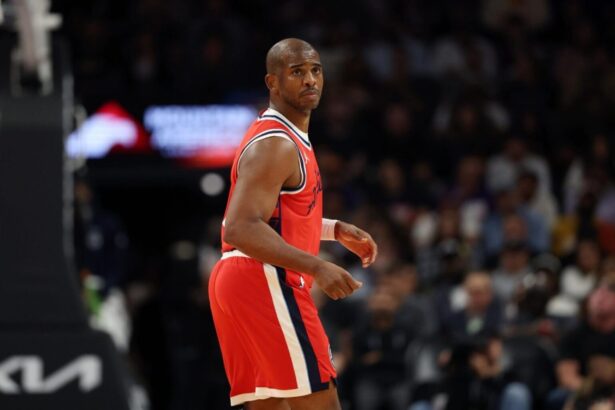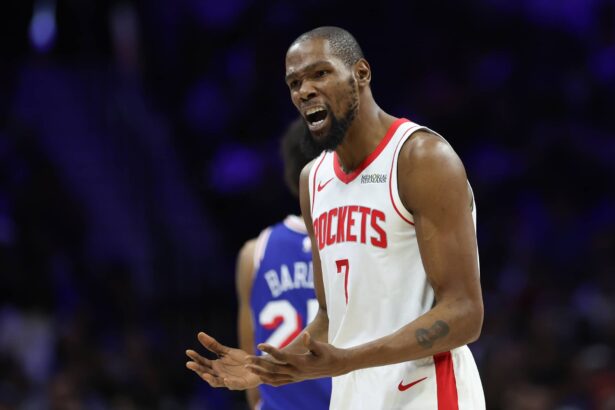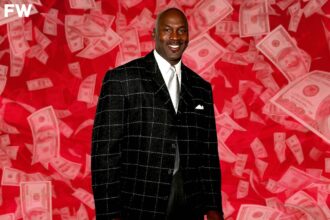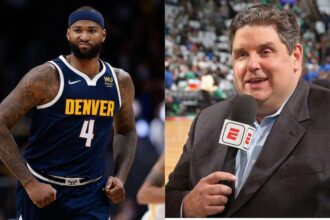In a bold reconfiguration of basketball royalty, Nick Wright unveiled his list of the 12 greatest NBA players on his show What’s Wright?, sparking debates and affirming his reputation for controversial takes. This list is not merely a ranking but a statement, reevaluating legacies and redefining what greatness encompasses in the realm of professional basketball.
Here’s Nick Wright’s full top 12:
1. LeBron James
2. Kareem Abdul-Jabbar
3. Michael Jordan
4. Magic Johnson
5. Bill Russell
6. Wilt Chamberlain
7. Tim Duncan
8. Kobe Bryant
9. Larry Bird
10. Hakeem Olajuwon
11. Shaquille O’Neal
12. Stephen Curry
At the pinnacle, Wright places LeBron James, favoring his sustained excellence and versatility over the traditional choice of Michael Jordan, who lands at third.
LeBron’s top ranking underscores his all-around impact on the game, characterized by his ability to excel in virtually every facet and his leadership in taking teams to the NBA Finals across three different decades.
Kareem Abdul-Jabbar, often a consensus top-three pick in historical rankings due to his unmatched scoring title, six MVP awards, and longevity, is Wright’s choice for the second spot. His career durability and consistent dominance represent a blend of peak performance and longevity that few can rival.
Michael Jordan, typically the go-to choice for the greatest of all time, is third. Jordan’s drop might raise eyebrows, but it reflects Wright’s criteria that value extended dominance and statistical accumulation.
Jordan’s six championships and five MVPs define an era of basketball, yet in Wright’s view, they do not surpass the broader impacts of LeBron and Kareem.
Magic Johnson and Bill Russell round out the top five, each transforming the game in unique ways. Magic, at fourth, brought showmanship and versatility to the point guard position, leading the Lakers to five championships. Bill Russell, known for his defensive prowess and winning mentality, claims the fifth spot with his 11 championships in 13 seasons, emphasizing the ultimate goal of professional sports: victory.
Wilt Chamberlain, placed sixth, known for his staggering individual statistics and records, is often debated for his impact on winning compared to his statistical achievements. Following him at seventh is Tim Duncan, often called the “Big Fundamental,” whose quiet leadership and consistency brought five titles to the San Antonio Spurs.
The placement of Kobe Bryant at eighth might shock many fans and analysts. Bryant, renowned for his scoring ability, competitive nature, and five championships, is frequently listed closer to the top five in similar rankings. Wright’s placement reflects a view that may prioritize team dynamics and overall efficiency over individual heroics.
Larry Bird, at ninth, brought a competitive edge and sharpshooting to the Boston Celtics, leading them to three NBA championships and earning three consecutive MVP awards. His rivalry with Magic Johnson during the 1980s is legendary, highlighting a golden era of the NBA.
Hakeem Olajuwon, at tenth, is celebrated for his defensive abilities and post moves. Two NBA titles and his status as one of the greatest centers of all time solidify his place. Shaquille O’Neal, another dominant center, follows at eleventh, with his physical dominance and charismatic presence that led to four NBA championships.
Finally, Stephen Curry, at twelfth, represents the modern evolution of basketball. His revolutionary shooting ability and leadership have not only earned him four championships and two MVP awards but also changed how the game is played at a fundamental level.
Nick Wright’s list is a blend of traditional and modern views, acknowledging statistical and championship metrics while also giving weight to the transformative impact players have had on the sport.
Each ranking is a piece of a broader conversation about what defines greatness in the NBA, a conversation that Wright has once again stirred with his characteristic flair for the provocative.

